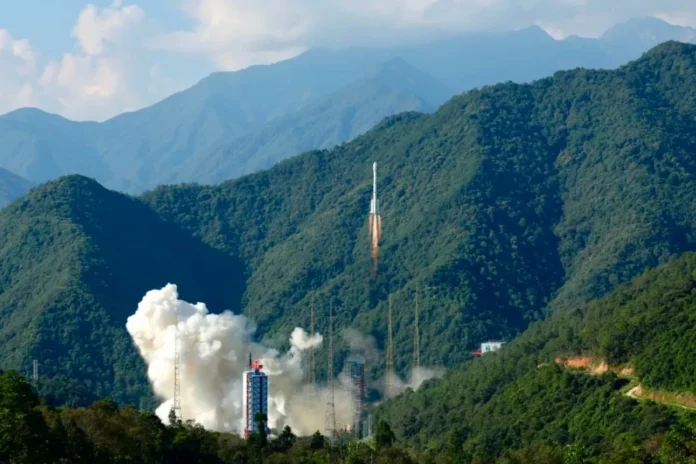China to Launch Next-Generation Beidou Satellites in 2027
Helsinki – China has recently announced its strategic roadmap for advancing its Beidou positioning and navigation system by 2035. This move could have significant global implications, as China plans to launch its next-generation Beidou satellites in 2027. This development marks a major milestone in China’s space program and is a testament to the country’s determination to become a major player in the space industry.
The Beidou system, also known as the Compass Navigation Satellite System, is China’s answer to the United States’ Global Positioning System (GPS). It was first launched in 2000 and has since undergone several upgrades and expansions. The current Beidou system consists of 35 satellites and covers the Asia-Pacific region. However, with the launch of the next-generation satellites, China aims to achieve global coverage and compete with the US GPS system.
The new Beidou satellites will be equipped with advanced features, including improved accuracy, better signal strength, and enhanced security measures. This will not only benefit China but also other countries that rely on satellite navigation for various applications, such as transportation, telecommunications, and disaster management.
One of the significant advantages of the Beidou system is its compatibility with other satellite navigation systems, such as GPS and Russia’s GLONASS. This interoperability will provide users with a more robust and reliable navigation service. It will also promote international cooperation and contribute to the development of the global space industry.
The launch of the next-generation Beidou satellites is a part of China’s ambitious space program, which aims to establish itself as a space superpower. The country has made remarkable progress in this field in recent years, with successful missions to the moon, Mars, and beyond. The Beidou system is another step towards achieving this goal and is a testament to China’s technological prowess and determination.
The development of the Beidou system also has significant economic implications. The satellite navigation market is estimated to be worth billions of dollars, and China’s entry into this market is expected to bring in substantial revenue. It will also create job opportunities and boost the country’s economy.
The launch of the next-generation Beidou satellites will also have a positive impact on the global space industry. It will provide healthy competition to other satellite navigation systems and drive innovation and technological advancements. This will ultimately benefit users worldwide, as they will have access to more advanced and reliable navigation services.
China’s Beidou system has already been used in various applications, such as disaster relief and transportation. With the launch of the next-generation satellites, its usage is expected to expand further. This will not only benefit China but also other countries, especially those in the Asia-Pacific region, where the Beidou system will provide better coverage and accuracy than other satellite navigation systems.
The announcement of China’s strategic roadmap for the Beidou system has been met with enthusiasm and excitement by the global space community. It is a clear indication of China’s commitment to the peaceful use of outer space and its willingness to collaborate with other countries for the benefit of all.
In conclusion, the launch of the next-generation Beidou satellites in 2027 is a significant development in China’s space program. It will not only enhance the country’s navigation capabilities but also have positive implications for the global space industry. With its advanced features, compatibility with other systems, and potential economic benefits, the Beidou system is set to become a game-changer in the satellite navigation market. China’s determination and progress in the space sector are truly commendable, and we can only look forward to more exciting developments in the future.

